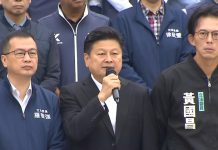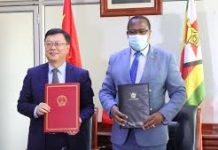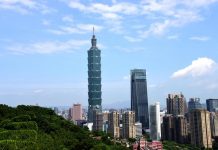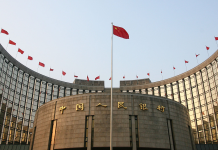By Our Diplomatic Correspondent
BEIJING: China said on Tuesday that there are no winners in a trade war after US President Donald Trump threatened to hit buyers of Russian exports with sanctions unless Russia agrees to a peace deal in 50 days.
“There are no winners in trade wars, and coercion and pressure will not solve the problem either. We hope all parties will work to foster an environment and build the conditions necessary for a political settlement of the Ukraine crisis, and do more to encourage peace and promote talks,” ministry spokesperson Lin Jian said at a regular press briefing.
The Kremlin has so far not commented on Trump’s remarks but said on Monday it was clear that the United States had continued to supply weapons and ammunition to Ukraine. China and India are the biggest buyers of Russian crude. Trump told the BBC that he was “not done” with Putin and that he thought a Ukraine peace deal was on the cards. China said that it opposed the politicisation and weaponisation of technology and trade issues after Nvidia announced plans to resume sales of its H20 artificial intelligence chips to China, days after its CEO, who is visiting Beijing, met President Trump.
“We generally refrain from making specific comments about the behaviour of companies. I would like to point out that China opposes the politicisation, instrumentalisation, and weaponisation of technology and trade issues, as well as the malicious blockade and suppression of China,” Lin said.
Nvidia’s AI chips have been a key focus of US export controls designed to keep the most advanced chips out of Chinese hands amid national security concerns, restrictions that the US-listed company said would cut its revenue by $15 billion. Nvidia, which has criticised the export restrictions the Trump administration imposed in April that stopped it from selling its H20 chip in China, said it has introduced a new model tailored to meet regulatory rules in the Chinese market.
Earlier, US Secretary of State Marco Rubio wrapped up his second and final day at a Southeast Asian security conference in a high-stakes meeting with his Chinese counterpart as tensions grow between Washington and Beijing over issues from trade to security and China’s support for Russia’s war in Ukraine.
After discussions with regional countries at the Association of Southeast Asian Nations forum in Malaysia, Rubio on Friday ended his first official trip to Asia with his first face-to-face talks with Chinese Foreign Minister Wang Yi.
Neither man nor the delegations spoke to journalists as they posed for photos at the top of the meeting.
The meeting was held less than 24 hours after Rubio met in Kuala Lumpur with another rival, Russian Foreign Minister Sergey Lavrov, during which they discussed potential new avenues to jumpstart Ukraine peace talks. The meetings come against a backdrop of global and regional unease over US policies, notably on trade and large tariffs that President Donald Trump has threatened to impose on friend and foe alike. While Rubio heard complaints about the tariffs from his Southeast Asian counterparts, he told reporters Thursday that many of them focused their discussion on security issues, their concerns about Chinese domination and desire for cooperation with the US.
“Of course, it’s raised. It’s an issue,” Rubio said. “But I wouldn’t say it solely defines our relationship with many of these countries. There are a lot of other issues that we work together on, and I think there was great enthusiasm that we were here and that we’re a part of this.”
However, Trump sees China as the biggest threat to the United States in multiple fields, not least technology and trade, and like previous US presidents has watched the country greatly expand its influence globally while turning increasingly assertive in the Indo-Pacific, notably toward its small neighbors over the South China Sea and Taiwan.
Trump has warned of massive tariffs that he could impose on Chinese exports to the United States and preliminary discussions between the two sides have yet to produce significant progress.
Since former President Joe Biden was in office, the US has also accused China of assisting Russia in rebuilding its military industrial sector to help it execute its war against Ukraine. Rubio said the Trump administration shares that view.
“I think the Chinese clearly have been supportive of the Russian effort, and I think that generally they’ve been willing to help them as much as they can without getting caught,” Rubio said Thursday, suggesting the topic would be discussed if he and Wang met.






